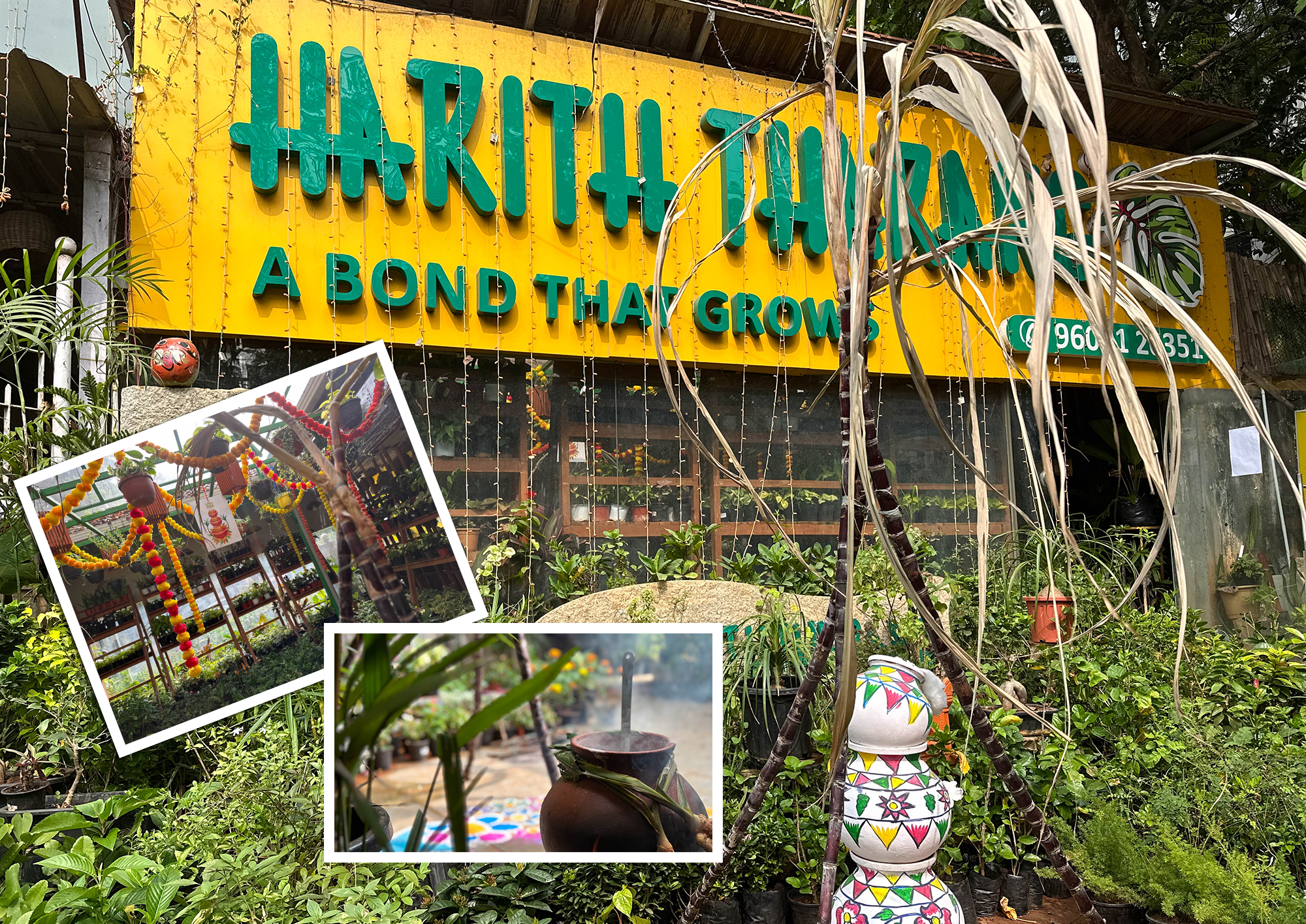
Article Detail
13 Jan
Pongal, the vibrant and sacred festival of Tamil Nadu, holds a special place in the hearts of its people, especially the hardworking farmers who toil tirelessly to bring bounty to our tables. As we delve into the essence of this festival, we uncover not only its cultural significance but also the agricultural rituals that bind the celebration to the land. Join us on a journey through the heart of Pongal, exploring its types, rituals, and ways to make this festival an eco-friendly celebration.
Significance of Pongal
Pongal marks the harvest season and is a testimony to the agricultural heritage of Tamil Nadu. It is celebrated with immense fervor, signifying gratitude to nature and the farmers who play a pivotal role in our lives. The festival spans four days, each with its unique rituals, symbolizing prosperity and abundance. From Bhogi, when old belongings are discarded, to Mattu Pongal, where cattle are honored for their contribution to agriculture, the festival radiates a sense of thanksgiving for the abundance yielded by the land.
The Four-Day Celebration
Let's delve into the rich tapestry of this four-day celebration:
1. Bhogi Pongal:
Bhogi Pongal marks the beginning of the festival and falls on the last day of the Tamil month of Margazhi. On this day, people engage in a thorough cleaning of their homes, discarding old belongings to symbolize the discarding of the past and the embrace of new beginnings. Traditional bonfires, known as 'Bhogi Mantalu,' are lit to burn the discarded items, and families gather to celebrate the cleansing of their homes and lives.
2. Thai Pongal:
Thai Pongal, also known as 'Makar Sankranti' in other parts of India, is the main day of the festival and coincides with the Tamil month of Thai. It is a day dedicated to expressing gratitude to the Sun God for the bountiful harvest. The highlight of Thai Pongal is the preparation of the special dish called Pongal, made from newly harvested rice, jaggery, and other ingredients. The act of allowing the Pongal dish to boil over symbolizes abundance and prosperity. Families come together to cook and share this delicious offering.
3. Maatu Pongal:
Maatu Pongal, observed on the third day, is a day to honor and express gratitude to the cattle, which play a crucial role in agriculture. Cattle are bathed, decorated with colorful accessories, and offered a variety of treats. Traditional 'Jallikattu,' a bull-taming sport, is also organized in some regions as a part of the celebration. This day underscores the integral relationship between farmers, their cattle, and the agricultural process.
4. Kaanum Pongal:
Kaanum Pongal, also known as 'Kanni Pongal,' is the final day of the festival and is dedicated to family gatherings and outings. Families visit temples, beaches, or parks, and special prayers are offered for the well-being of loved ones. In some regions, women create intricate kolam designs in front of their homes, and brothers pay visits to their sisters' homes. It is a day of bonding, reflection, and sharing the joy of the festival with close ones
Green Celebration During Pongal
In the spirit of environmental consciousness, let's explore how we can make our Pongal celebration eco-friendly:
1. Eco-Friendly Decor: Embrace natural decorations using flowers, leaves, and traditional kolam designs, minimizing the use of synthetic materials.
2. Plant Gifting: Instead of conventional gifts, consider giving potted plants to friends and family. This not only promotes green living but also contributes to a sustainable environment.
3. Sustainable Cooking: Opt for locally sourced, organic ingredients for your Pongal dishes. Supporting local farmers ensures that your celebration has a positive impact on the community.
4. Waste Reduction: Minimize waste by using reusable plates and utensils. If possible, compost the organic waste from your celebration.
Gratitude for Farmers
Pongal is the perfect occasion to express our deep gratitude to the farmers who work tirelessly to feed the nation. As we savor the delicious Pongal dishes, let's reflect on the effort, dedication, and perseverance of the farming community. Supporting local farmers by choosing their produce not only ensures the freshness of your meals but also aids in the sustainability of agriculture.
Conclusion
In conclusion, Pongal transcends its role as a cultural festival and becomes a celebration of life, nature, and the invaluable contribution of farmers. As we engage in the festivities, let's strive for a green celebration, mindful of our impact on the environment. By incorporating eco-friendly practices, expressing gratitude for farmers, and cherishing the traditions of Pongal, we can make this festival not only joyous but also sustainable. May this Pongal be a reflection of our commitment to a greener, more harmonious world. Happy Pongal to all from Harith Tharang!


